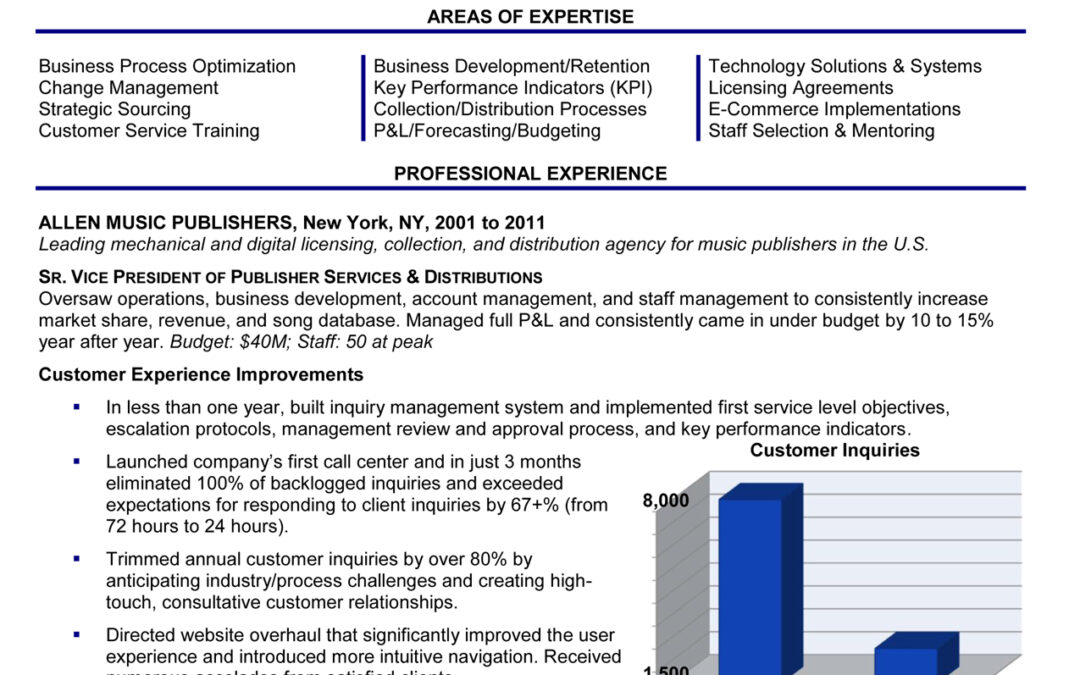 Careerbuilder recently surveyed 2,298 U.S. hiring managers and human resources professionals and asked what would make them automatically dismiss a candidate from consideration. The biggest resume mistakes they communicated were:
Careerbuilder recently surveyed 2,298 U.S. hiring managers and human resources professionals and asked what would make them automatically dismiss a candidate from consideration. The biggest resume mistakes they communicated were:
Resumes with typos – 61 percent
Resumes that copied large amounts of wording from the job posting – 41 percent
Resumes with an inappropriate email address – 35 percent
Resumes that don’t include a list of skills – 30 percent
Resumes that are more than two pages long – 22 percent
Resumes printed on decorative paper – 20 percent
Resumes that detail more tasks than results for previous positions – 16 percent
Resumes that include a photo – 13 percent
Resumes that have large blocks of text with little white space – 13 percent
Many of these mistakes seem obvious or sound like errors that would only occur with entry-level job seekers. But I review the resumes of senior professionals daily and these mistakes (any many more) are commonplace. Here’s what I frequently see when I review resumes along with my recommendations for fixing these common resume issues.
- Lack of qualifications summary. The top section of your resume provides the 40,000 foot view of who you are and what you can offer employers. Think of it like a movie trailer. When we see a trailer we like, we are more likely to go see the movie. Capture your reader’s attention by focusing on a few of your key selling points and matching those high level points with proof that you have helped the organizations you have supported do things smarter, faster, and more efficiently.
- Summary is too long. Your summary should focus on two to four of your key deliverables. When the list is longer than this, the resume becomes unfocused and confusing for your reader.
- Summary is too generic. The goal of the summary section is to make you stand out from your competition. Phrases that convey personal attributes such as good communicator, team player, dedicated, etc. are overused on resumes and don’t really prove that you possess that attribute. Focus on specific high level successes rather than tired phrases that can’t be quantified.
- Lack of keywords. Keywords are the words that convey your competencies within a specific job function or industry. A good strategy is to create a category following the professional summary section called Areas of Expertise and list your keywords there.
- Keywords aren’t specific enough. The keywords you have selected are much too general. Think about the specific types of skills a hiring manager would be looking for if they were searching for someone like you.
- Long blocks of text. Hiring authorities don’t read resumes. They scan them quickly for key content. Big blocks of text are too cumbersome to read and nothing stands out. Using them will make your reader lose interest quickly. A better strategy is to use bullets to highlight key pieces of information and accomplishment.
- Too much information about job tasks. A brief paragraph of 4-5 sentences for each position is enough. Focus on the accomplishments in each role rather than the job tasks.
- No accomplishments. You have conveyed your job responsibilities but it is unclear what you accomplished for the organizations you supported. Employers need to understand your accomplishments within the context of each job and want to know how you helped these companies make money, save money, save time, grow the business, or keep the business.
- Accomplishments are too text dense. You have listed many accomplishments for each position and it is difficult for the reader to understand the full context behind these accomplishments. Consider breaking the accomplishments into themed categories and place similar accomplishments together within the body of the chronology. This strategy offers more digestible “sound bites” for your reader and makes it easier to comprehend your value proposition on a quick scan.
- Accomplishments lack context. You have given a metric to show how you improved something within the organizations you have supported but there is no context around these accomplishments. Your reader needs to understand the business conditions you were faced with so they can put your accomplishment into context. Without a business context, a statement about an improvement has limited relevance.
- Too long. Most employers don’t want to read more than two pages. You can consolidate earlier experience by selecting one or two key accomplishments from each position or by creating a section called Early Experience and simply listing company names, job titles, and dates.
- Education is listed before professional experience. If you have held at least one position since you graduated, your career your work accomplishments are more relevant than your education. Place the education section after the professional experience section to better position yourself at an executive level.
Want more resume writing advice? Download my free resume writing e-book located at the bottom of Barbara Safani’s LinkedIn page.



You need to make your resume and online presence unique to stand out from the thousands of other applicants.
http://myresumerocks.com/summarize-yourself-well/